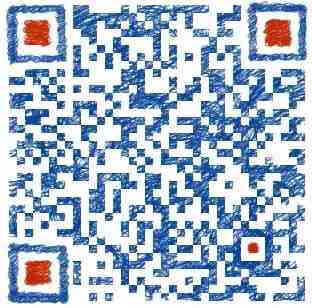FBI要求美大学需监控中国留学生和学者,哥大校长刊文硬刚FBI:我不会监视我的外国学生!

关注我们:点击上方"HiDreamer"↑订阅每日优质内容。来自北美留学生原创+实用分享平台
不知道大家是否还记得那条一个月前的新闻:美国公共广播新闻网报道称,美国FBI正在约谈多家美国大学,希望他们能协助FBI监视来自中国的留学生和学者……

不过,由于FBI目前还没有强制要求这些学校必须配合,所以这些美国高校虽然被FBI约谈,却并没有开始对中国留学生和学者进行监控,一些院校的管理人员还对FBI的提议提出了异议:一方面是因为这些高校并不认同FBI给中国留学生和学者做出的威胁等级认定,另一方面是因为FBI在如何实施相关监视上并不明确。
但话说回来,由于这些美国院校的不少科研项目也是靠美国政府的科研经费支持的,FBI的这种间接施压也令这些学校一定程度上陷入了两难的境地。从美国公共广播新闻网的报道来看,不少美国院校其实并不排斥中国留学生和学者,一些名校还曾发声明表示会继续支持中国留学生和学者。但在那些由美国政府拨款支持的科研项目上,这些院校并不确定还该不该让中国留学生和学者参与其中。
根据美国NPR公共广播电台报道,美国FBI正在约谈多家美国大学,希望他们能协助FBI监视来自中国的留学生和学者……

美国公共广播新闻网报道说,在由60所美国研究型大学和2所加拿大的大学所组成的“美国大学协会”中,已有至少10名成员被FBI约谈(其中还有两所加拿大大学: 麦吉尔大学和多伦多大学)。
协会部分大学名单

三名来自这些美国高校的管理人员称,FBI给这些大学提供了一份名单,其中包括多家来自中国的科研机构和企业,希望他们能制定一个办法来监视来自政府隶属研究机构的学生和访问学者。而且监控涉及中国留学生和访问学者正在进行的研究。
印第安纳大学研究副校长弗雷德·凯特(Fred Cate)告诉美国国家公共电台(NPR)说:“我们被问到,如何能知道他们在哪个实验室里工作,或者他们接触到了哪些信息。”
“这不仅仅是寻找可疑行为的问题——它实际上针对的是特定的国家和来自这些国家的人。”
在一份回应NPR问题的声明中,联邦调查局表示,“我们会见了各种各样的团体、组织、企业和学术机构,这是我们正在进行的国家安全事务的一部分。”
虽然执法人员也讨论了大学对其他国籍的监控问题,但联邦调查局的这些简报针对的是来自中国的游客,尤其是科学、技术、工程和数学领域的游客。
美国大学反对此行为

美国加州大学伯克利分校发布声明
表示会继续支持学校的国际留学生和学者
哥大校长布林格日前向全校师生发送邮件并在《华盛顿邮报》上刊文,称尽管FBI“鼓励”大学设立渠道监视尤其是华人血统的学生和访问学者,但哥伦比亚大学不会这么做。

据悉,这已不是布林格首次就FBI介入美国校园一事表明自己的立场。就在8月30日,他曾在《华盛顿邮报》发表题为《不,我不会监视在国外出生的学生》的文章,布林格指出,此类监视行为正在将经济政治上的担忧同美国宪法第一修正案所倡导的自由对立起来。

布林格对FBI的所为更显深恶痛绝,认为此等行为非常荒谬,并借此将此事公开于国际大众,尤其强调所谓 “中国学生间谍” 论点可笑荒唐:
“一个人外国人,飞了大半个地球来美国,就是为了‘潜伏’到我们的大学里,了解我们最新的学术发现。而这个人大可坐在自己舒适的办公室内,把关键字输入进搜索引擎就能够阅读学术期刊。或者同样地这个人也可访问美国专利及商标局的网站,那儿有最新发明专利的详细介绍。”

以下是英文原文:
The FBI has stepped up its scrutiny of research practices at college and university campuses — including mine.
Law enforcement and intelligence agencies determined to thwart the illegal transfer of intellectual property to foreign rivals are encouraging U.S. academics and administrators to develop more robust protocols for monitoring foreign-born students and visiting scholars — particularly if they are ethnically Chinese.
With students returning to campus, these policing attempts thrust economic and political concerns into fierce conflict with First Amendment freedoms.
To be sure, government-funded academic research in such national security realms as cybersecurity and bioterrorism is justifiably sensitive. Likewise, academic research conducted in collaboration with U.S. companies — a principal target of most unlawful technology transfers — leads to commercial innovations that warrant protections. Universities have an obligation to comply with existing security protocols, identify sensible ways to bolster them, and cooperate fully with law enforcement authorities and corporate research partners if clear acts of espionage are suspected. To the extent we are falling short in any of these areas — and yes, there have been isolated incidents of academics sharing sensitive intellectual property with foreign governments — we can and must do better.
At the same time, however, only a fraction of the research conducted on campus is “secret.” Indeed, the reality is just the opposite. Academic research is intended to be shared — released into the public domain to advance human progress. Groundbreaking medical discoveries, agricultural innovations credited with saving billions of people worldwide from starvation, the Internet, artificial intelligence: All are the result of publicly available, university-based research.
With students returning to campus, these policing attempts thrust economic and political concerns into fierce conflict with First Amendment freedoms.
Consequently, a foreign national need not fly halfway around the world to “infiltrate” our great universities and learn about our latest insights and findings: With some notable exceptions, she can type words into a search engine and peruse peer-reviewed academic journals from the comfort of an office or dorm room overseas. Or, similarly, she can visit the U.S. Patent and Trademark Office’s website, where applications for patent protection provide detailed descriptions of recent innovations.
And so, most worrisome to me, as someone who has spent five decades advocating freedom of expression and assembly, is the notion that university personnel — and perhaps students themselves — should be asked to monitor the movements of foreign-born students and colleagues. This is antithetical to who we are.
The mission of a university is to foster an open atmosphere conducive to speculation, experimentation and creation. American higher education is the envy of the world not in spite of, but because of, its unrivaled commitment to openness and diversity. Attracting — and welcoming — the brightest minds in the world, regardless of nationality or country of origin, is what we’re all about.
To put it another way, the U.S. university model is a strategic advantage, not a hindrance to American competitiveness. Our administrators, professors and research scholars are not, and should not become, an arm of U.S. law enforcement. Ironically, what the FBI apparently considers our great vulnerability is, in my view, our greatest strength.
At Columbia University, where I am president, thousands of students and faculty represent more than 150 countries. We stewards of major research universities couldn’t contain intellectual freedom even if we wanted to. The incompatibility of university culture with systematic scrutiny may explain why even law enforcement officials who have visited our campus have offered little prescriptive guidance, instead offering that we should be vigilant.
The unauthorized use of intellectual property by overseas competitors is a serious problem. But the surveillance of foreign-born scholars in this country is the wrong solution. If law enforcement agencies have legitimate concerns, it seems to me that they should identify and monitor those they designate as “suspicious people” based on real threats, not broad worries about entire nationalities.
A more effective approach — advocated by many of my colleagues in higher education as well as the bipartisan Commission on the Theft of American Intellectual Property — is to expand the number of green cards awarded to foreign-born graduates of our great colleges and universities. Many of these international scholars, especially in the fields of science, technology, engineering and mathematics, would, if permitted, prefer to remain in the United States and work for U.S.-based companies after graduation, where they could also contribute to the United States’ economic growth and prosperity. But under the present rules, when their academic studies are completed, we make it difficult for them to stay. They return to their countries with the extraordinary knowledge they acquired here, which can inform future commercial strategies deployed against U.S. competitors.
The mandate of our colleges and universities is to pursue open, robust inquiry across a wide range of topics. Our institutions of higher learning should do more — not less — of what made the United States the most innovative nation in the history of the world.
不管如何,最直接的影响将是目前正在参与美政府拨款研究项目的中国留学生和学者,学校可能为了让研究项目进行下去而排除中国留学生、学者。因为一旦进行监控,会造成项目的额外支出也可能影响科研项目正常进行。
后台回复“哥大校长”,可查看公开信中文翻译版~


德勤管理咨询
人事、深圳、内推入职机会
德勤管理咨询某全球数字生态咨询项目现招聘实习生3名,主要参与战略规划、方案设计、生态融合场景提炼、行业研究等专业工作。要求有良好的英文水平、分析思考和沟通能力,熟练进行文献综述和PPT报告产出。优秀者在实习结束后有机会内推入职。
文章综合整理来源于网络~如有侵权,请联系删除~hidreamer诚意推荐!
加小嗨微信,来聊个五毛钱的天
留学|生活|鸡汤|学业|牢骚


Hidreamer投稿邮箱:[email protected],简单说一句:咳咳,原创作者xxx都已经拿到往返美国机票了,有料的你还掩藏什么才华呢!
往期精彩回顾

想留学但不知规划,留学问题一堆无处得到答案
请后台回复【姓名+电话+意向国家+学位】
不花一毛钱,给你最新最精确的回答
——热门科研实习推荐——
商科、人文精英课程
美国Smart City远程科研
哥大、哈佛等名校实验室项目
德勤、国泰君安、安永EY、百度、和君
咨询请返回微信对话框回复
姓名+电话+项目方向(或意向专业类别)
▼

留学热点追踪
留学申请深度咨询
最实用的北美生活Tips
线下活动+直播讲座
海外企业内推机会

最新评论
推荐文章
作者最新文章
你可能感兴趣的文章
Copyright Disclaimer: The copyright of contents (including texts, images, videos and audios) posted above belong to the User who shared or the third-party website which the User shared from. If you found your copyright have been infringed, please send a DMCA takedown notice to [email protected]. For more detail of the source, please click on the button "Read Original Post" below. For other communications, please send to [email protected].
版权声明:以上内容为用户推荐收藏至CareerEngine平台,其内容(含文字、图片、视频、音频等)及知识版权均属用户或用户转发自的第三方网站,如涉嫌侵权,请通知[email protected]进行信息删除。如需查看信息来源,请点击“查看原文”。如需洽谈其它事宜,请联系[email protected]。
版权声明:以上内容为用户推荐收藏至CareerEngine平台,其内容(含文字、图片、视频、音频等)及知识版权均属用户或用户转发自的第三方网站,如涉嫌侵权,请通知[email protected]进行信息删除。如需查看信息来源,请点击“查看原文”。如需洽谈其它事宜,请联系[email protected]。

